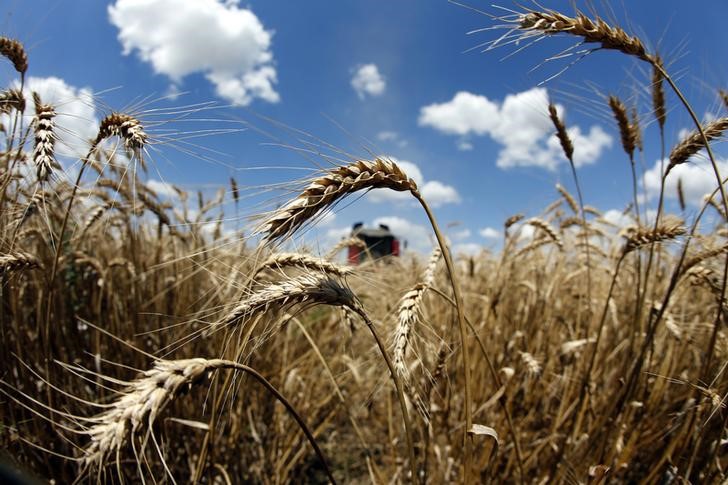By Mayank Bhardwaj
NEW DELHI, March 18 (Reuters) - Persistent rain and hail storms could cut India's wheat crop by at least 14 percent this year, potentially forcing the world's second-biggest producer to import the grain for the first time in a decade, an industry body said.
Bad weather will shave off at least 13 million tonnes from the farm ministry's latest forecast of 93.8 million tonnes for 2016, industry body ASSOCHAM said in a statement on Friday.
"The emerging wheat situation in the country is alarming in view of the expected lower crop, depleting stocks and the erratic weather threatening the crop further," it said.
Showers and ice pellets pummelled the crop this month, cutting yields and delaying harvests in a stark reminder of a freak storm last year that flattened crops in the breadbasket states of Punjab, Haryana, Uttar Pradesh and Madhya Pradesh.
The untimely rains this year have repeatedly lashed the mature, ripened wheat crop, which comes after a warm winter that delayed planting. at government granaries will drop to 13.4 million tonnes on April 1, 2016, when the new marketing year begins, down 22 percent from a year earlier, ASSOCHAM estimated.
Inventories will plummet below 10 million tonnes in 2017 bringing them precariously close to minimum level of 7.4 million tonnes required by the government, the industry body said.
That grim prognosis is a far cry from the unmanageable stocks India was sitting on until 2014 when the government-backed Food Corporation of India had to store wheat under tarpaulins in open fields, exposing it to rodents and rain.
ASSOCHAM called on Prime Minister Narendra Modi's government to import duty-free wheat and urged authorities to cut the wheat import tax to 5-10 percent from 25 percent now. Only last month, traders warned that India would soon be a net buyer of some key commodities for the first time in years. import taxes would encourage private traders to import and keep inflation under check, ASSOCHAM advocated.
Government sources said the finance ministry would soon decide whether to lower the import tax or to extend it beyond March 31, when the levy automatically expires.
Farm Minister Radha Mohan Singh this week said he expected to assess the extent of crop damage in the next two to three weeks. (Editing by David Clarke)
